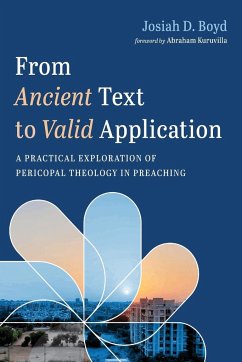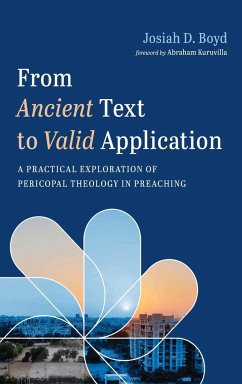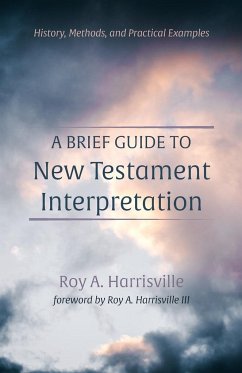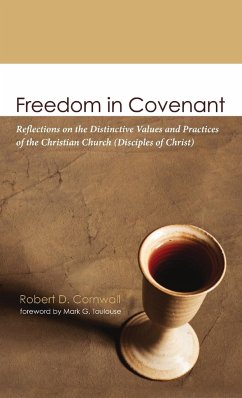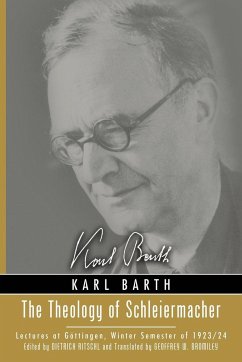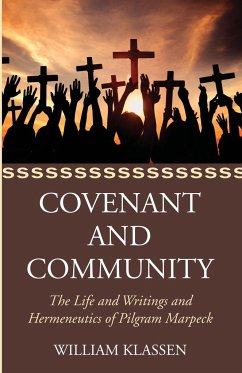
Covenant and Community
Versandkostenfrei!
Versandfertig in 1-2 Wochen
21,99 €
inkl. MwSt.

PAYBACK Punkte
11 °P sammeln!
One of the problems in interpreting the Bible has always been the question of how much freedom the interpreter is allowed to take with the text. In approaching this problem William Klassen decided that at no point in the history of the church was this question raised as urgently as in the sixteenth century. The recent discovery of a number of writings by Pilgram Marpeck, an outstanding leader among the Anabaptists of the sixteenth century, made him a logical point of departure for this study. Accordingly, the book begins with a brief description of Marpeck's life and writings, then moves on to...
One of the problems in interpreting the Bible has always been the question of how much freedom the interpreter is allowed to take with the text. In approaching this problem William Klassen decided that at no point in the history of the church was this question raised as urgently as in the sixteenth century. The recent discovery of a number of writings by Pilgram Marpeck, an outstanding leader among the Anabaptists of the sixteenth century, made him a logical point of departure for this study. Accordingly, the book begins with a brief description of Marpeck's life and writings, then moves on to an analysis of the two central concepts in his theology--the covenant and the Christian community. For Marpeck, the covenant is determined by Christ, and not by the Old Testament, and so the interpreter must take very seriously the way in which Jesus Christ has illuminated all of scripture. In addition, the interpreter works within a community, a community of people who have covenanted with each other to follow Christ. The covenant is taken very seriously within the community, requiring a different approach to holy scripture from that adopted by the individualist. After his analysis of Marpeck's theology, Klassen proceeds to examine the relationship of this sixteenth-century discussion to present hermeneutical debates. It is noted for example, that certain religious groups have had a great deal of difficulty coming to agreement on the relation of the old and the new covenants, and that in many seminaries today it is the major theological question. But the nature of the Christian community is also one which directly affects each congregation. Therefore the book addresses itself not only to the trained theologian, but to the congregation which seeks to take seriously its mandate to study the Bible.



